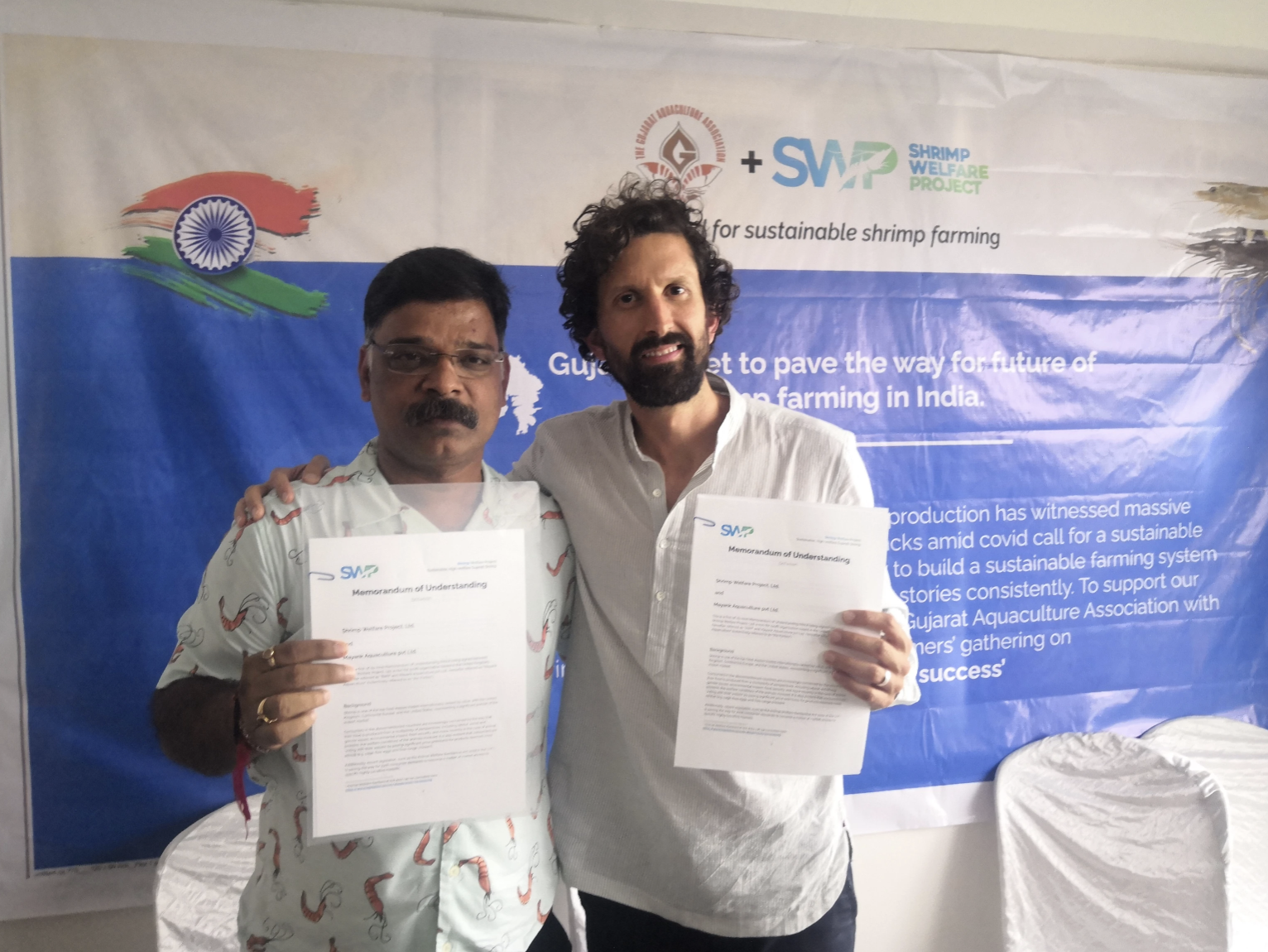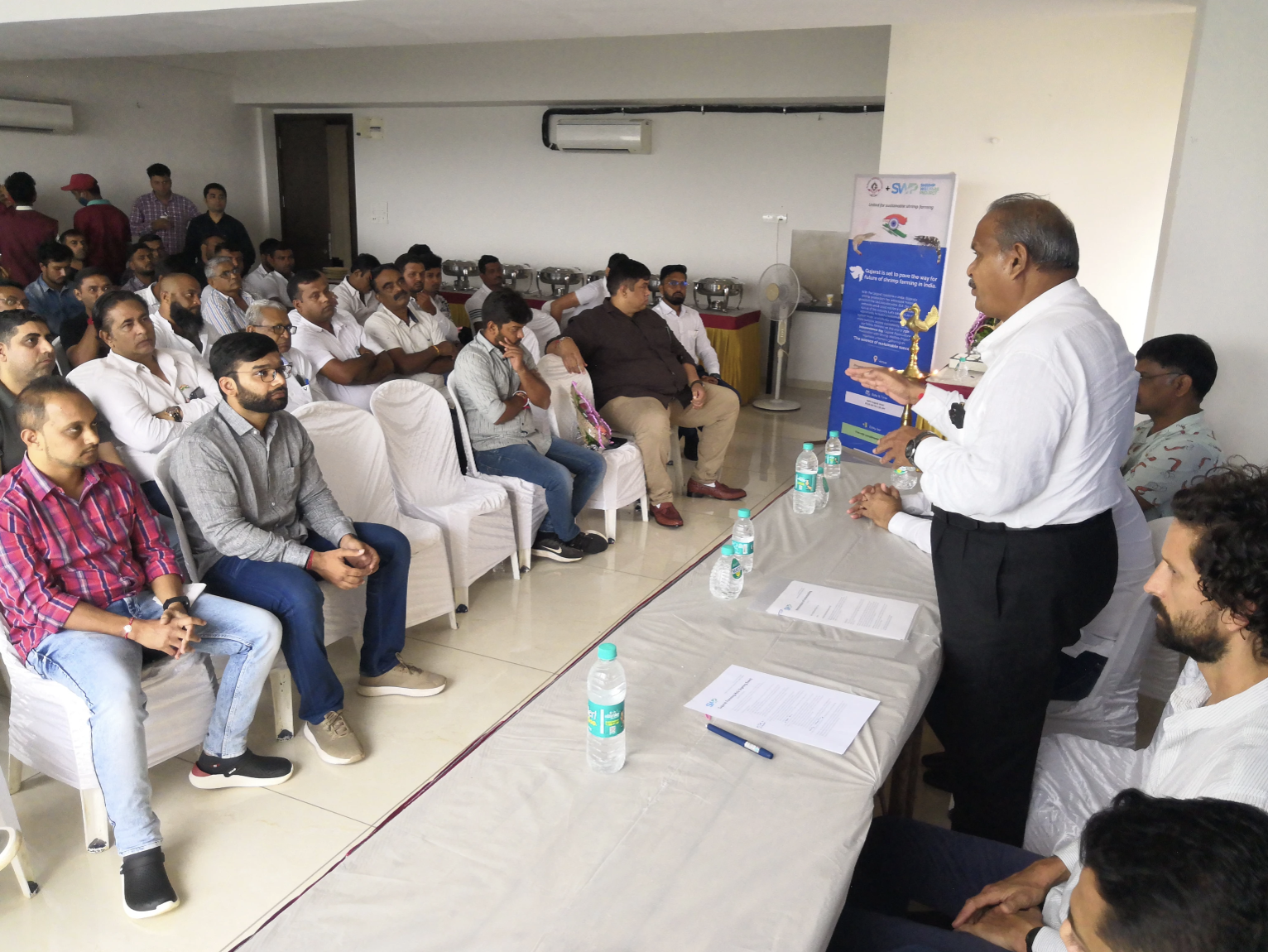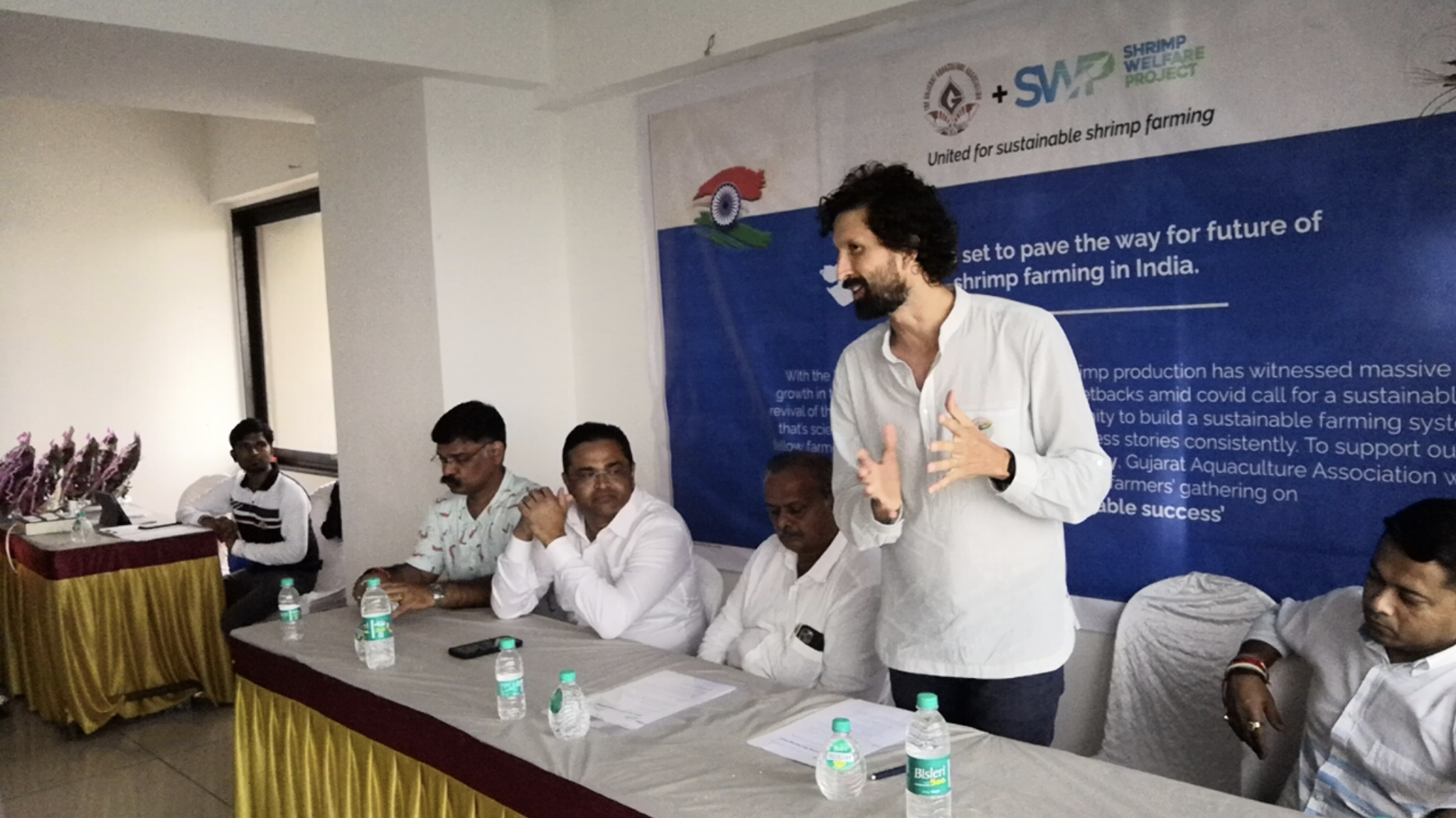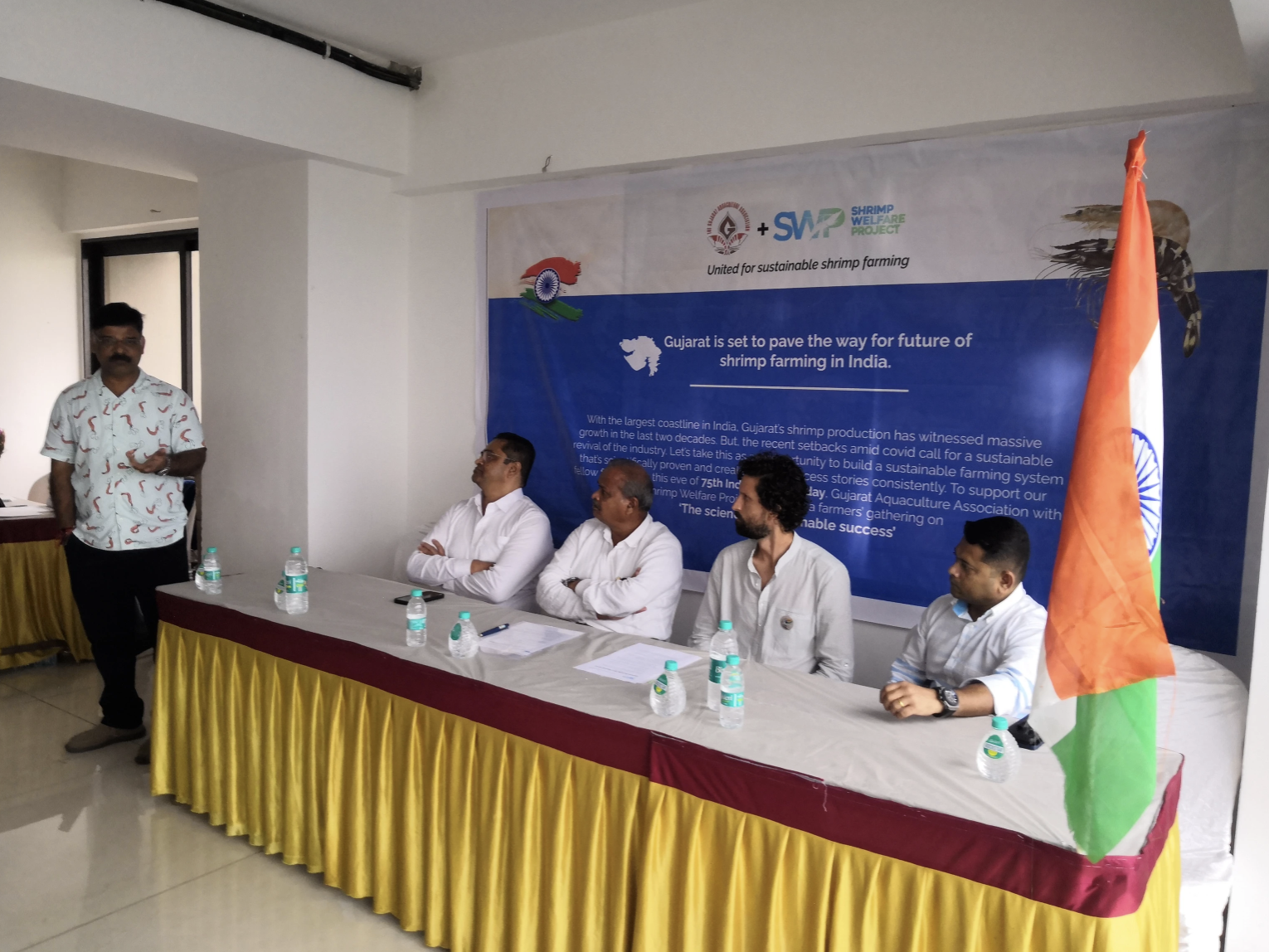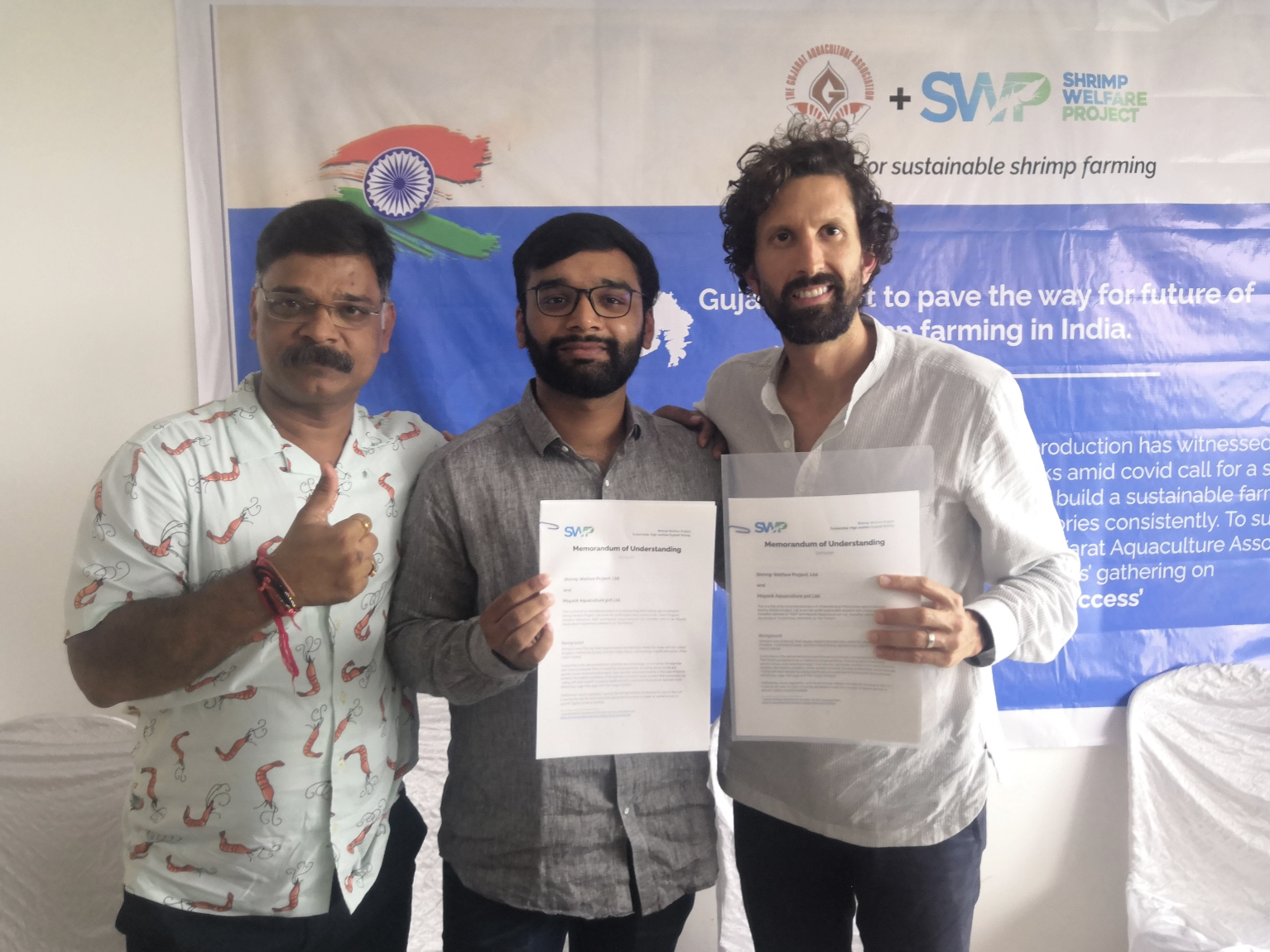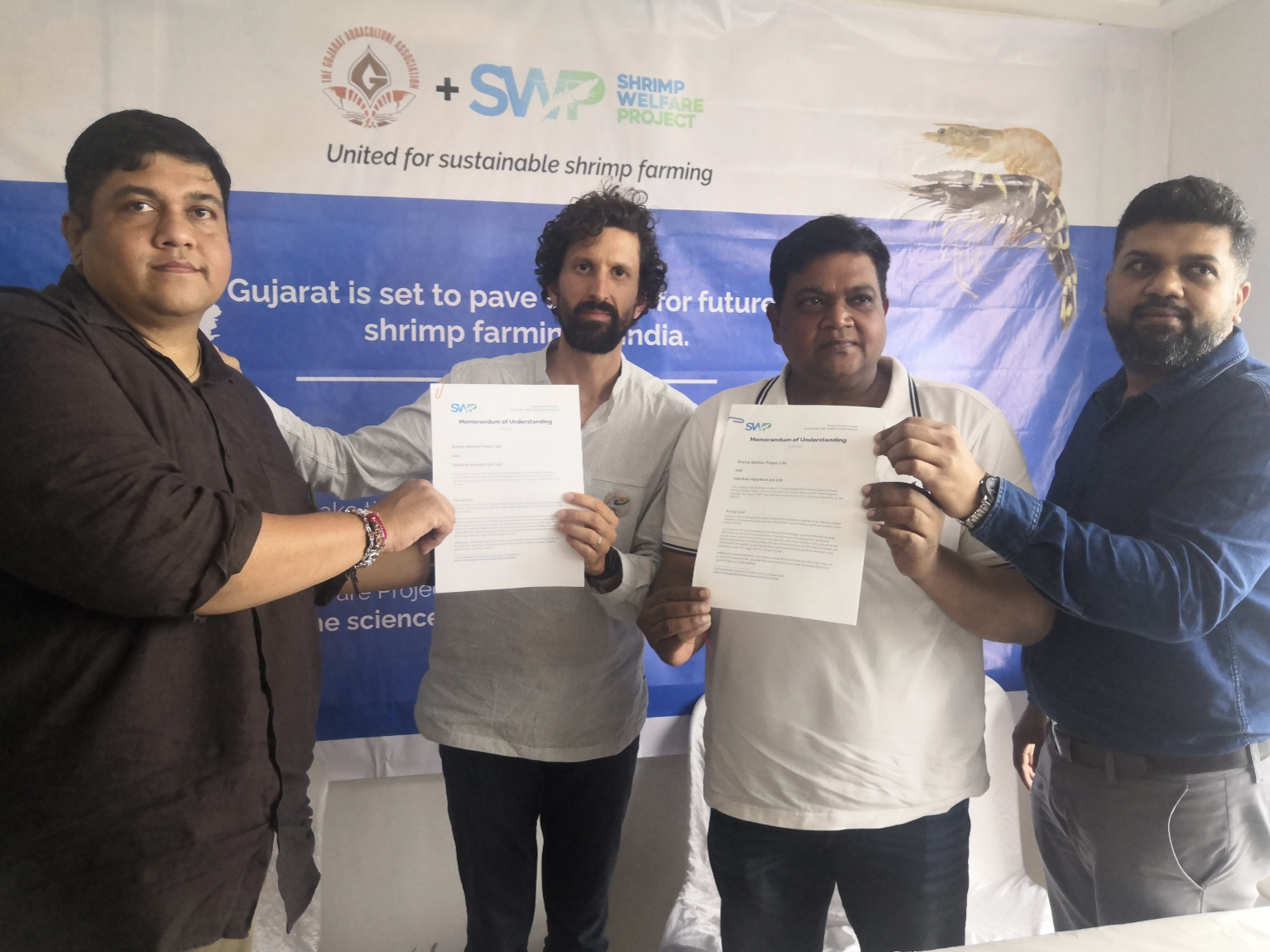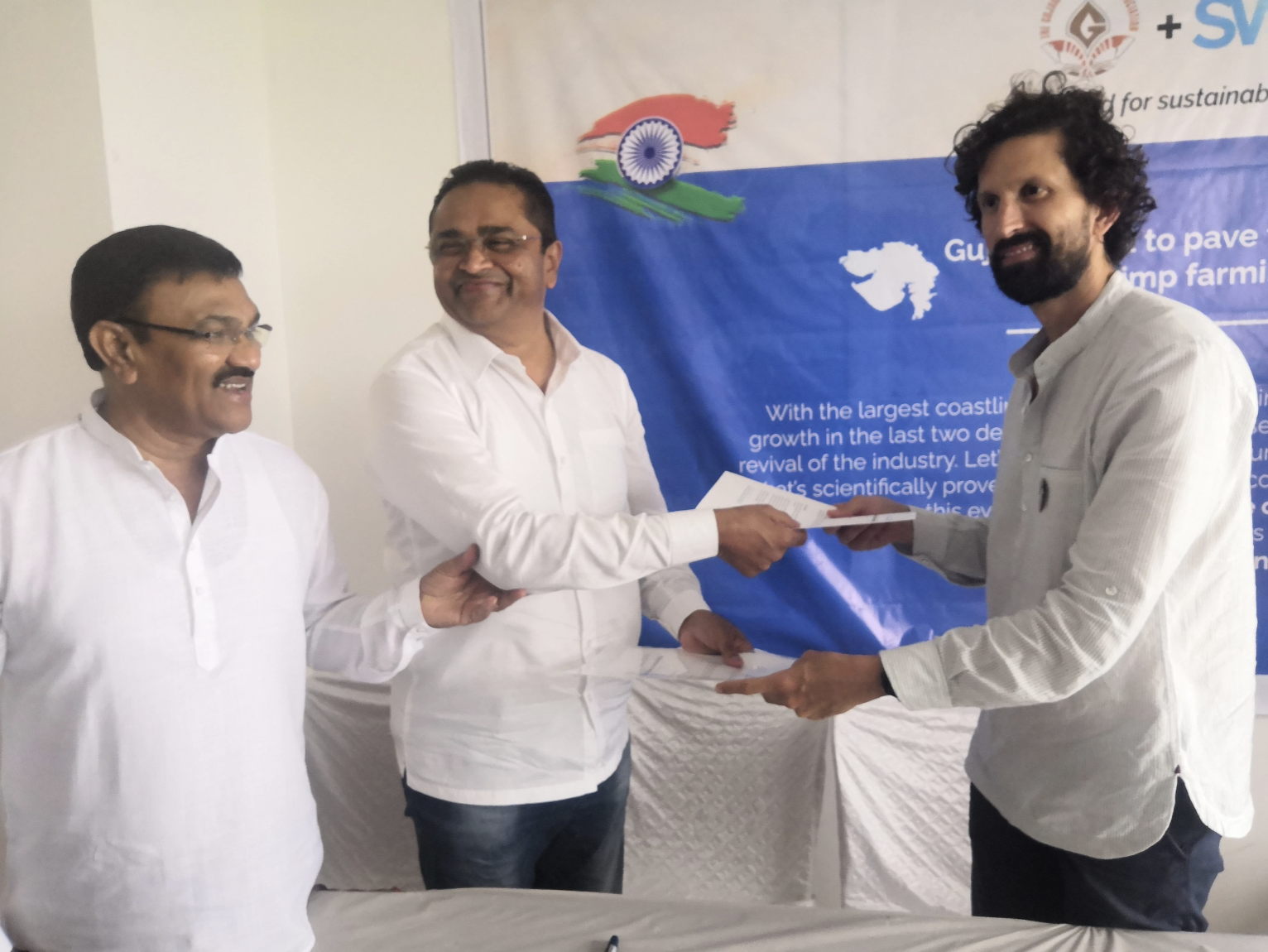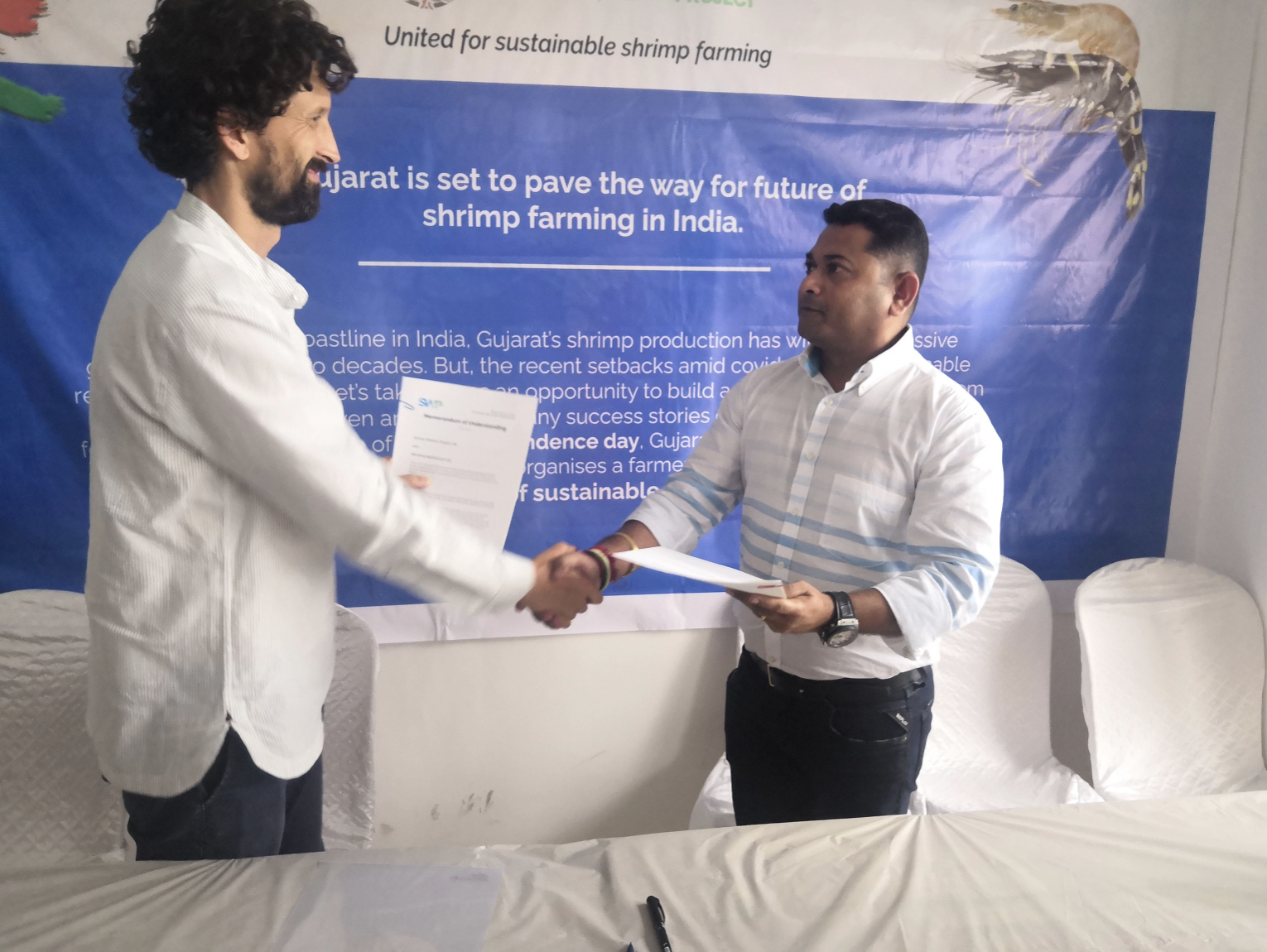Gujarat’s shrimp farmers, processors and hatcheries sign MoU for sustainable higher-welfare shrimps
Shrimp consumers in premium markets have more concerns about the ways their shrimp are produced than ever before. These consumers express an interest in a range of different aspects of the shrimp production process including concerns over associated social and gender issues, the environmental impact of farming, food security, and, more recently, the humane standards in the production of such animal protein.
Additionally, the growing recognition of decapod sentience, such as the passage of the UK’s Animal Welfare (Sentience) Act 2022, is expected to transform these consumer concerns into regulations which determine access to a number of highly lucrative markets.
In light of these changing market dynamics, Gujarat’s shrimp farmers and industry leaders recently gathered to discuss sustainable shrimp farming across the state. Held on the 75th Indian Independence Day, the event was organized jointly by the Gujarat Aquaculture Association and Shrimp Welfare Project. This meeting resulted in the signing of seven Memorandums of Understanding (MoU), the first of its kind, which will ensure that shrimp are farmed sustainably and humanely across Gujarat.
The Indian State of Gujarat has a long tradition of upholding high moral standards including a commitment to the wellbeing of all sentient beings. This commitment to welfare standards marks Gujarat as the birthplace for this innovative project which will raise the bar in sustainable, high-quality shrimp aquaculture.
Dr. Manoj Sharma from Mayank Aquaculture was the keynote speaker for the event and spoke on the reasons why farmers should unite and adopt more sustainable practices together. Mr. Sharma stated that: “[s]ustainably sourced shrimps is the need of the hour and Gujarat can position itself as the place for sourcing sustainable shrimp on the world map; we must strive to gain and retain this recognition”. He also emphasized that the goal of sustainably farming shrimp could only be attained if Gujarati farmers were united in their efforts.
Mr. Suresh Patel, the president of Gujarat Aquaculture Association asked farmers to recognise the need for sustainability and added that Gujarat’s farmers can pave the way for the rest of India to follow. Mr. Patel added: “[i]f we unite [and] continue practicing responsible cultures undeterred by recent market setbacks, Gujarat can become the market leader for sustainable shrimps”.
Andrés Jiménez Zorrilla, the co-founder and director of the UK based organisation Shrimp Welfare Project spoke on his interest in responsible farming and his transition from working as an investment banker to becoming a full-time sustainability enthusiast. Mr. Zorrilla stated that, "[i]n the case of animal proteins, the welfare conditions of the animals involved are of paramount importance. It is also evident that consumers are ‘voting with their wallets’ by paying significant price premiums for products deemed more ethical just like cage-free eggs and free-range chickens".
Gujarat is also distinguished by its strong collaborative ties among different stakeholders in shrimp farming, primarily represented by the Gujarat Aquaculture Feed Dealer Association (GAFDA). The president of GAFDA, Pradip Navik, was a chief guest at the event and he gave an overview on the growth and challenges in Gujarat’s shrimp farming industry over the span of the last two decades. Mr. Navik also opined that farmers should be more receptive to suggestions and shared that, “Gujarat’s superior shrimp quality is well known, we must retain our positioning by focusing on long term goals of industry sustainability”.
Following Mr. Navik’s presentation, Jignesh Contractor of Vaishnavi Aquatech spoke about his career and his experience with the first penaeus monodon (black tiger prawn) Broodstock Multiplication Centre (BMC) in India, which was inaugurated by the Minister of Fisheries, Animal Husbandry and Dairying. The event’s guests then heard from Tandel’s Hatchery’s Narendra Tandel who spoke of his faith in the market’s resilience, applauded the initiative, and encouraged farmers to join the MoU.
Multiple stakeholders signed the MoU with Shrimp Welfare Project, namely the Gujarat Aquaculture Association, Mayank Aquaculture, Vaishnavi Aquatech, Mindhola Seafoods, Zeal Aqua, Tej Aqua, and Hariom Aquaculture.
The collaboration of so many key shareholders in this event is a promising sign for the growth of sustainable shrimp farming in Gujarat. The MoU presents a unique and exciting opportunity for the Gujarati shrimp farming industry to position itself as an answer to the demands of niche and premium markets.
The event was concluded by the distribution of mementos from Shrimp Welfare Project and a delicious lunch organized by Zingala Restaurant.
